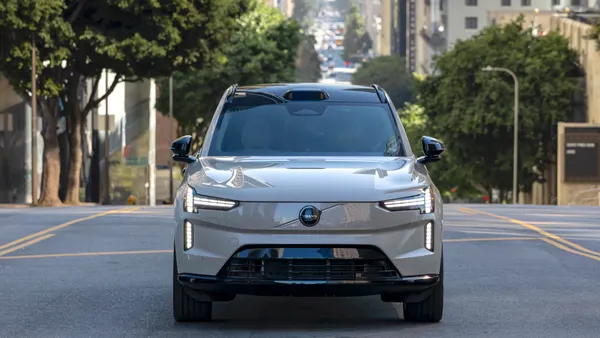BYD is bashing right through European Union tariffs meant to curb the Chinese automaker’s market growth there by introducing a new model and building an assembly plant in Turkey.
BYD’s strategy to build electric vehicle plants in Turkey and Hungary allows it to sidestep some of the tariffs the European Union imposes on Chinese-manufactured EVs. The EU has raised tariffs on Chinese EV imports, with rates reaching up to 55% for some, to counteract what it considers unfair subsidies for Chinese manufacturers. However, vehicles produced within Turkey can benefit from the EU-Turkey Customs Union, avoiding these tariffs when exported to EU markets.
Partnering with BYD on plants in Turkey and Hungary is automotive supplier Forvia, which has assisted BYD opening seven plants across China. Forvia is also partnered with BYD on a seat assembly plant in Thailand and the development of a dedicated R&D center in Shenzhen.
“Bringing our partnership with BYD to Europe is a major milestone for both our companies. Our collaboration has already resulted in significant achievements in Asia, and we are confident that this expansion will drive further innovation and growth in the European market,” says Patrick Koller, CEO of Forvia, the world’s seventh-largest auto supplier.
After its new Sealion 7 was spotlighted as one of the hits of the Paris auto show, BYD executive vice president Stella Li said she expects the new midsize battery-electric SUV will “extend our reach” in Europe. Indeed, the Sealion 7 is BYD’s eighth vehicle to arrive in Europe.
Morgan Stanley analyst Adam Jonas has highlighted that BYD’s expansion in Europe is likely to create significant pressure on traditional European automakers. He notes that BYD's focus on affordable, premium EVs with local production could enable the company to capture market share rapidly. Jonas sees BYD as strategically well-positioned to challenge incumbents like Volkswagen, given its cost advantages, vertical integration with a mature battery business and streamlined manufacturing operations. This shift is expected to reshape competitive dynamics in Europe,
The EU is caught in a conundrum. BYD and other Chinese automakers are digging deeply into the businesses of Europe’s established automakers – Volkswagen, Stellantis and Renault. Those companies have overcapacity as a result. The EU has levied tariffs of up to 55% on Chinese BEVs in an attempt to buy time for the European automakers to develop low-cost BEV platforms. In the meantime, they can’t stop Chinese automakers from buying auto plants that will put workers back on the assembly lines.
Nio, for example, is in discussions to acquire Audi’s Brussels plant in Belgium from Volkswagen Group as that facility has stopped making electric vehicles.
BYD’s overall EU market share – BEVs and internal-combustion-engine vehicles – is expected to increase to 25% this year as the company expands its presence in the region. BYD’s goal is to capture at least 5% of the European BEV market.
According to current EU regulations, all new cars sold in the EU are expected to be zero-emission vehicles by 2035. Automakers and their suppliers are asking the EU to tap the brakes on that target or else risk the financial stability of VW, Renault and Stellantis.
BYD is also building a plant in central Mexico that will build 150,000 vehicles a year and employ 10,000 workers.
BYD’s cost advantage is so superior that it can still build its business and price its products competitively with the tariffs included. Li says BYD will launch new BEVs at affordable prices, starting at $27,500 to $30,000 (€25,000 to €30,000) in Germany.
The Chinese automaker, which is a vertically integrated BEV company producing its own batteries, is serious about growing to eventually be a giant in Europe. The company, for example, recently bought out its German distributor, Heden Electric Mobility, giving it more control over prices and volume.









